Find Help
More Items From Ergsy search
-

How can I cope with morning sickness? | NHS
Relevance: 100%
-

Are gig workers entitled to sick leave?
Relevance: 53%
-
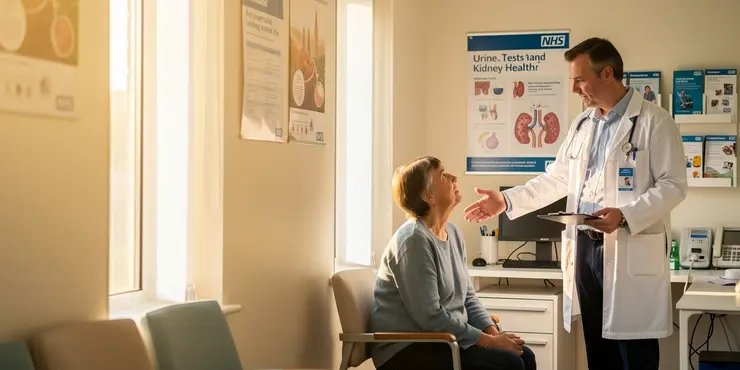
Do morning urine tests give more accurate results?
Relevance: 47%
-
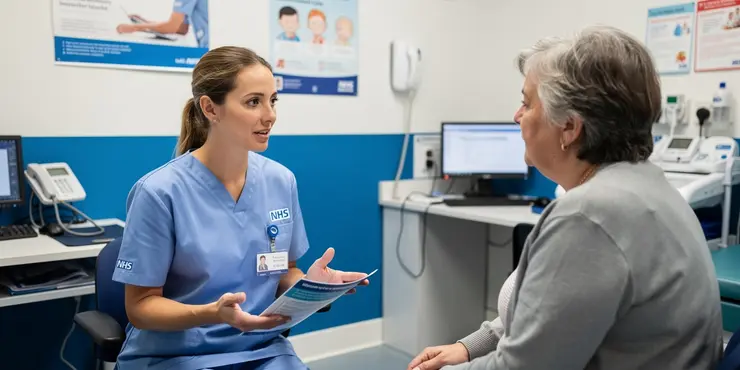
Why do vaccinated people sometimes still get sick?
Relevance: 37%
-
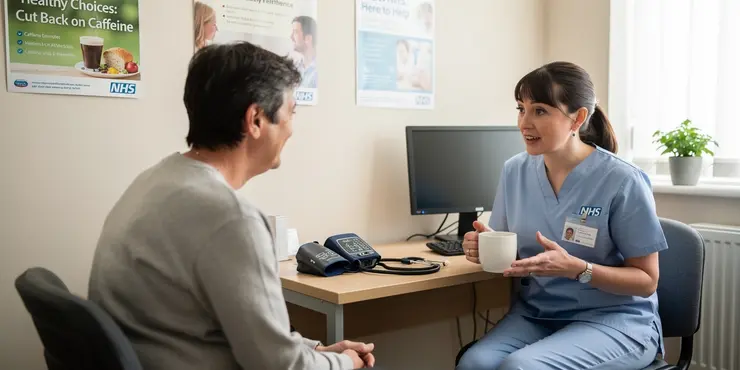
Does drinking coffee every morning increase the risk of developing high blood pressure?
Relevance: 33%
-
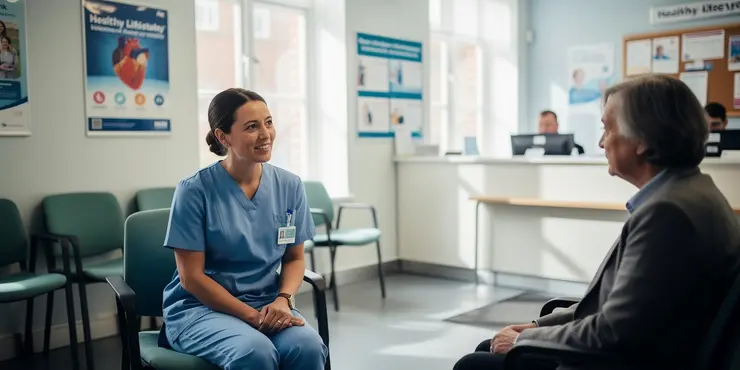
Is Your Morning Coffee a Risk Factor for High Blood Pressure?
Relevance: 32%
-
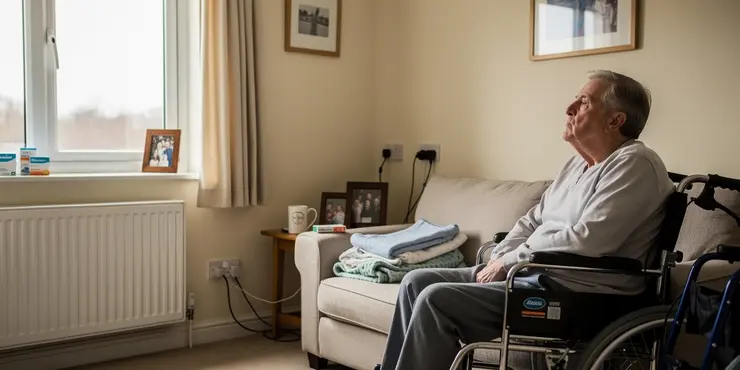
How is breathing affected by motor neurone disease?
Relevance: 16%
-

Is there a specific time of day when coffee has the most impact on blood pressure?
Relevance: 16%
-

Can bereavement leave be taken consecutively with other leaves?
Relevance: 14%
-

Using pressure points to relieve nausea
Relevance: 14%
-
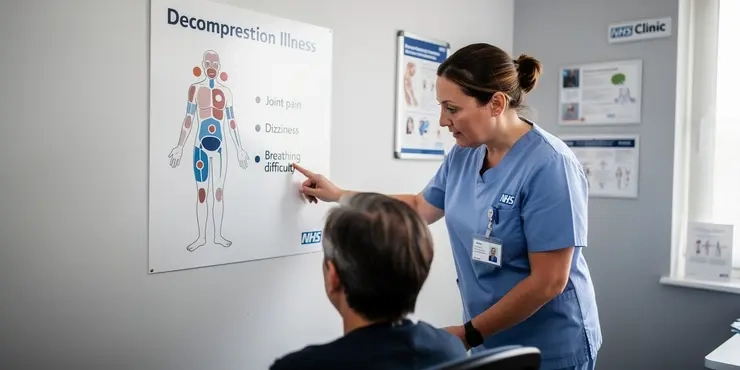
An Introduction to Decompression Illness: Signs & Symptoms”. Dr Roland Armes
Relevance: 14%
-
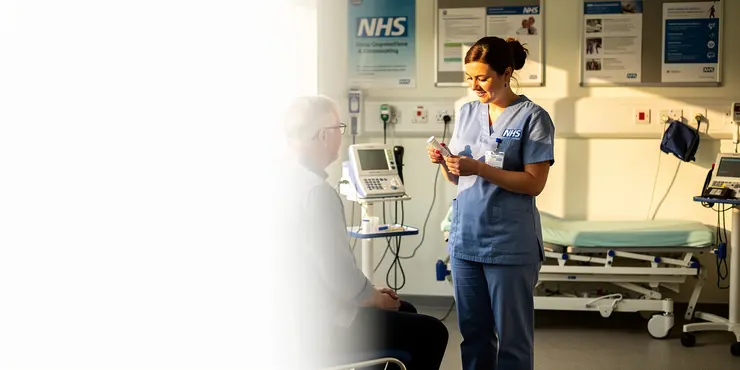
What is the relationship between cortisol and the circadian rhythm?
Relevance: 14%
-
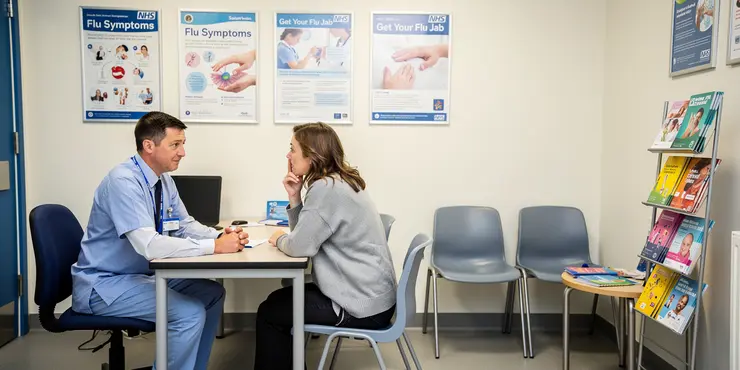
How long does H3N2 flu typically usually continue?
Relevance: 13%
-
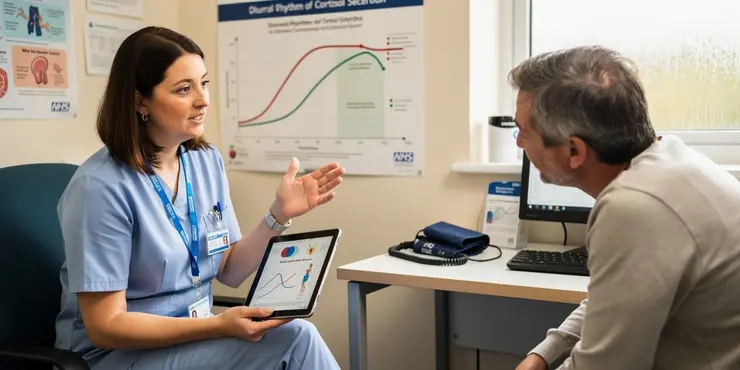
What is the normal pattern of cortisol secretion throughout the day?
Relevance: 13%
-
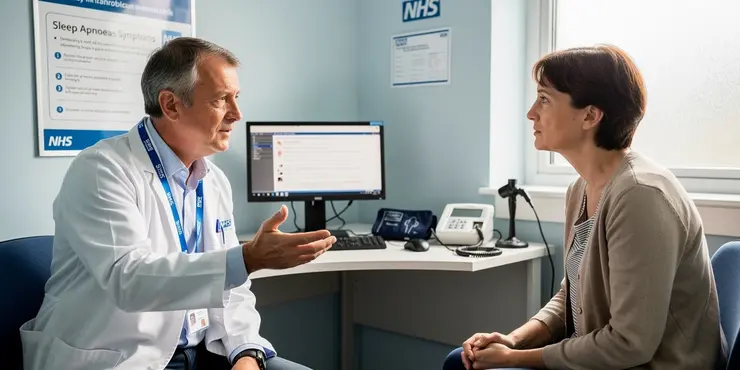
What are common symptoms of sleep apnea?
Relevance: 13%
-
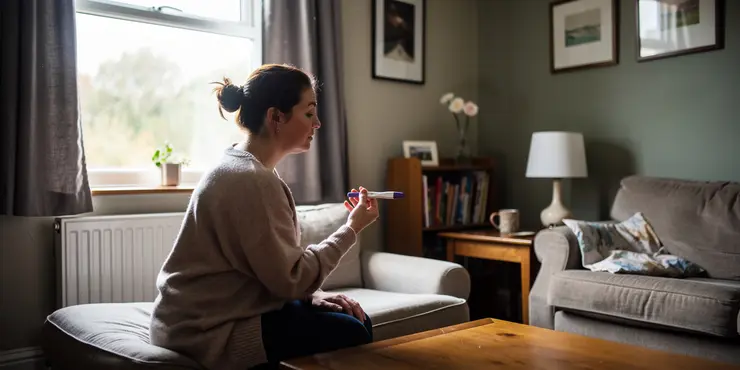
Can drinking a lot of water affect pregnancy test results?
Relevance: 12%
-
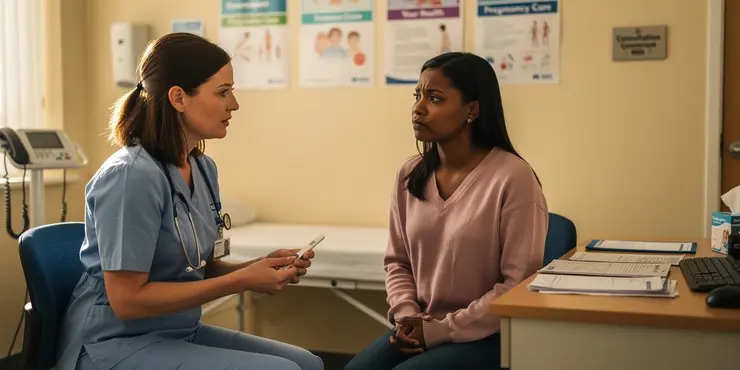
What should I do if I get unclear results on a pregnancy test?
Relevance: 12%
-

Should I adjust my exercise routine during a heatwave?
Relevance: 12%
-

How can I stay safe while walking to work?
Relevance: 12%
-

How does walking to work impact mental health?
Relevance: 11%
-

How to stay cool during a heatwave
Relevance: 11%
-

How can I keep my kids cool during a heatwave?
Relevance: 11%
-
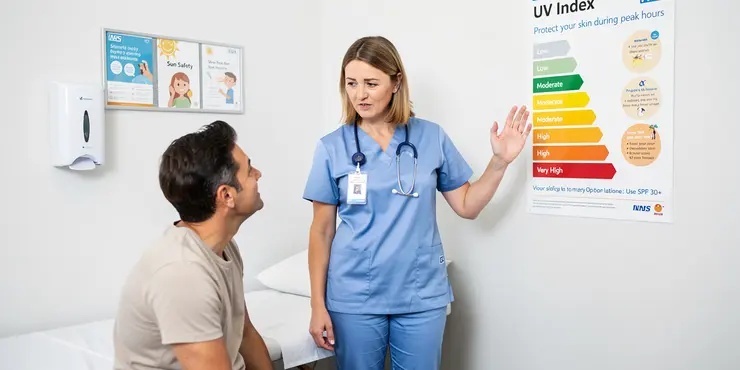
At what time of day is the sunburn risk highest?
Relevance: 11%
-
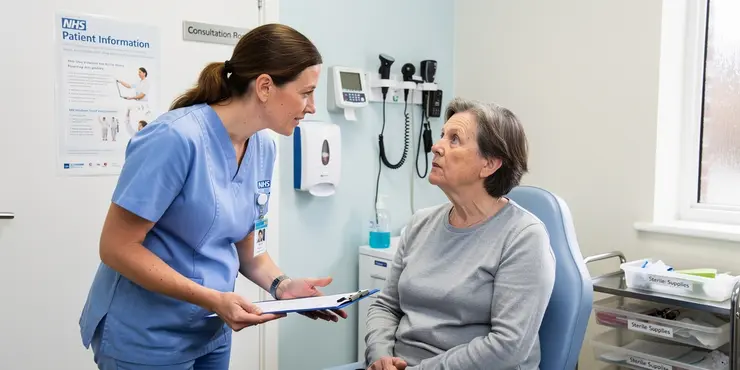
Who founded homeopathy?
Relevance: 10%
-
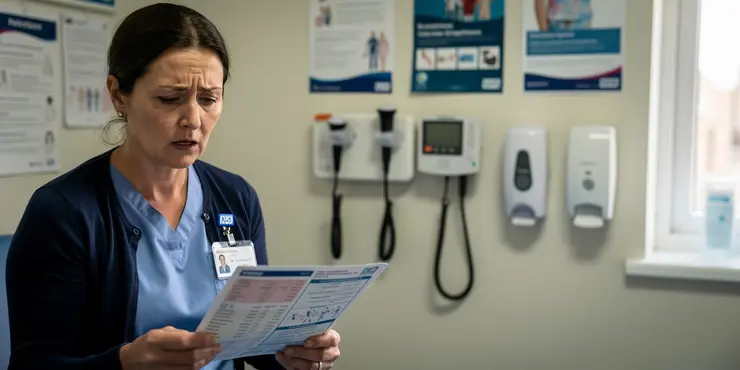
What is the H3N2 flu strain?
Relevance: 10%
-
Can orange juice aid in hydration?
Relevance: 10%
-

What are the common symptoms of asthma?
Relevance: 10%
-
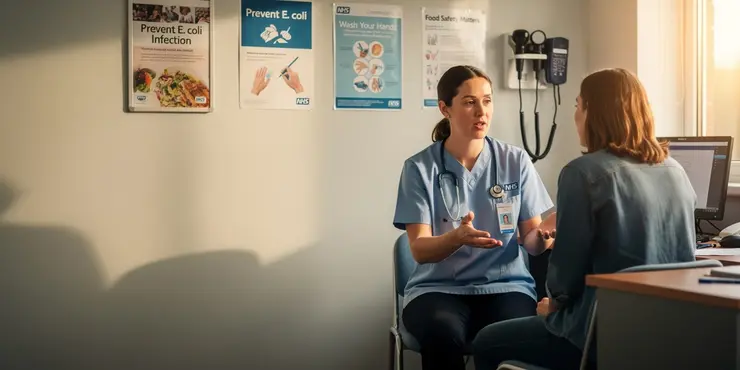
Can E. coli cause illness?
Relevance: 10%
-
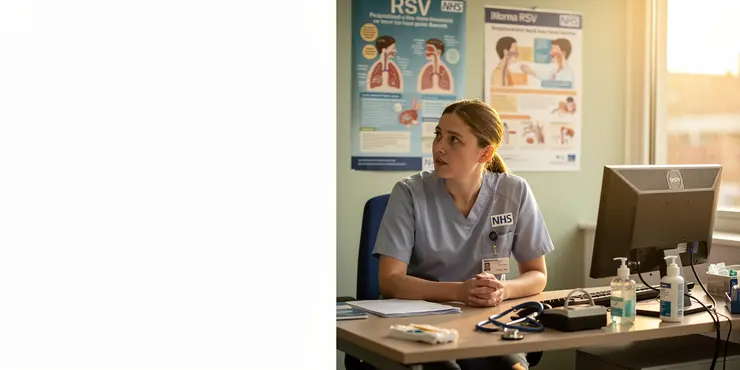
What is RSV (Respiratory Syncytial Virus) or bronchiolitis? UHL NHS Trust
Relevance: 10%
-
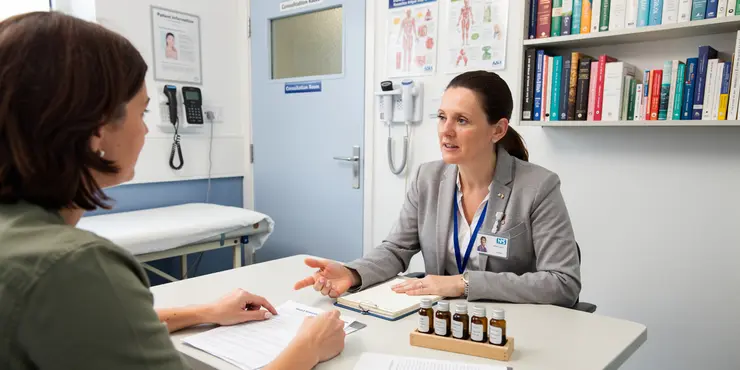
What is Homeopathy and Homeopathic Medecine?
Relevance: 10%
-
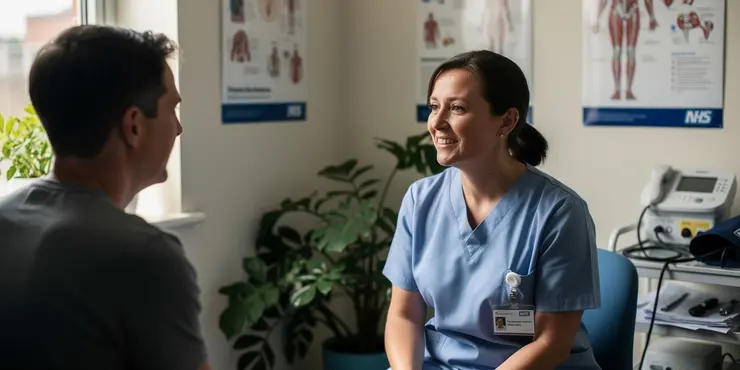
Employment Tribunal Cases Surge Amidst Gig Economy Debate
Relevance: 10%
-

How can I keep my plants alive during a heatwave?
Relevance: 10%
-
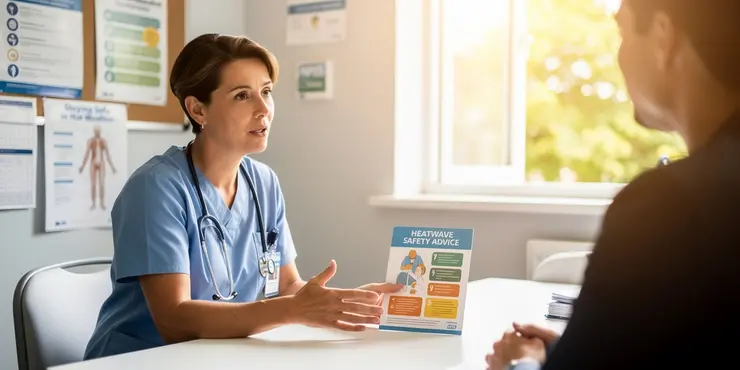
What activities should I avoid during a heatwave?
Relevance: 10%
-

How to treat tonsillitis | NHS
Relevance: 10%
-
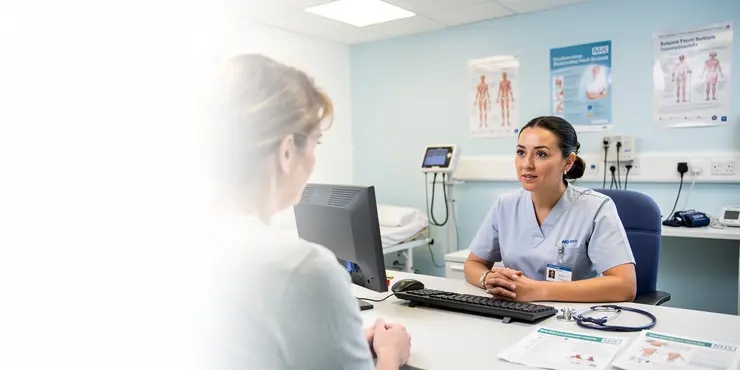
What is cortisol?
Relevance: 9%
-
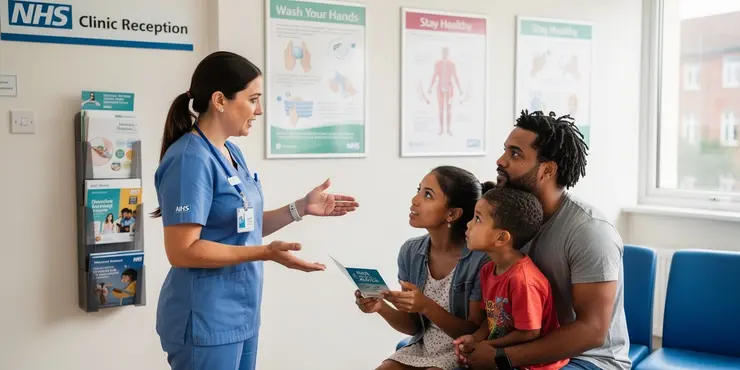
What preventive measures can reduce the risk of Nipah Virus infection?
Relevance: 9%
-

Understanding Seasonal Flu: Prevention and Treatment
Relevance: 9%
-

How can I stay motivated to walk to work regularly?
Relevance: 9%
-
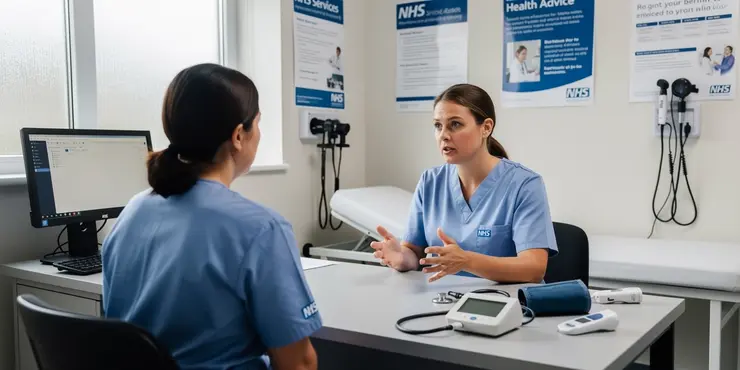
Is the Super Flu contagious?
Relevance: 9%
-
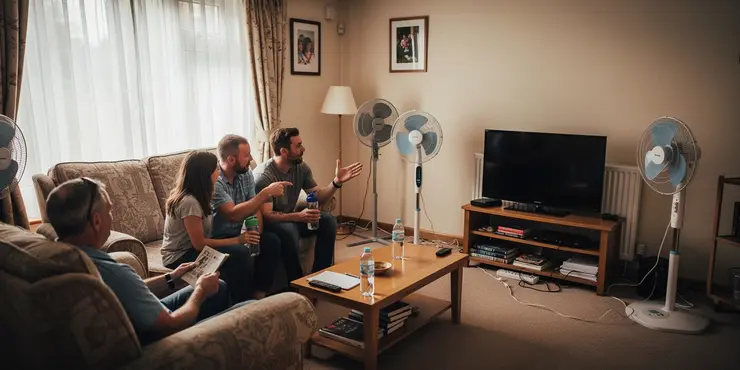
What should I do during a heatwave?
Relevance: 9%
How Can I Cope with Morning Sickness? | NHS
Understanding Morning Sickness
Morning sickness, or nausea and vomiting during pregnancy, is a common experience among pregnant women. Typically, it occurs in the first trimester but can persist beyond this period for some women. While it's usually not harmful to the baby, it can be uncomfortable and disruptive to your daily routine.
Dietary Adjustments for Morning Sickness
Making certain adjustments to your diet can help alleviate symptoms of morning sickness:
- Small, Frequent Meals: Eating small but frequent meals can help keep your stomach from becoming either too full or too empty, both of which can exacerbate nausea.
- Avoiding Trigger Foods: Spicy, greasy, and highly aromatic foods can often trigger nausea. Opt for bland, easy-to-digest foods instead.
- Stay Hydrated: Drinking fluids, especially between meals rather than during them, can help manage nausea. Sipping ginger tea or sucking on ice chips may also be beneficial.
Lifestyle Changes for Relief
Certain lifestyle changes and habits can counteract morning sickness:
- Get Plenty of Rest: Fatigue can aggravate nausea, so be sure to get adequate sleep and take naps if necessary.
- Fresh Air: Sometimes, simply getting some fresh air can help reduce nausea. Try taking short walks outside or keeping windows open for good ventilation.
- Avoid Strong Odours: Strong smells can trigger nausea, so try to avoid areas with strong cooking smells, smoke, or other intense scents.
Medical Treatments and Remedies
If lifestyle and dietary changes aren’t sufficient, consulting with your healthcare provider may be necessary:
- Vitamin B6 Supplements: Some studies show that Vitamin B6 can help reduce nausea. Consult your GP before starting any new supplements.
- Antiemetic Medications: In severe cases, your doctor may prescribe antiemetic medications to help control vomiting and nausea.
- Acupressure Wristbands: Some women find relief using acupressure wristbands, which are designed to apply pressure on points associated with nausea reduction.
When to Seek Medical Advice
It's essential to know when to seek medical advice for morning sickness:
- If you are unable to keep any food or liquids down
- If you experience severe weight loss
- If you feel dehydrated or faint
- If you have dark urine or don’t urinate for more than 8 hours
If you experience any of these symptoms, contact your GP or midwife immediately. Severe cases of morning sickness might require medical supervision and can sometimes be a condition known as hyperemesis gravidarum, which needs prompt treatment.
For more information, visit the NHS website.
How Can I Cope with Morning Sickness? | NHS
What is Morning Sickness?
Many pregnant women feel sick or throw up, which is called morning sickness. It usually happens in the first few months of pregnancy. Sometimes, it can last longer. It is not usually harmful to your baby, but it can make you feel bad and affect your daily activities.
What to Eat and Drink for Morning Sickness
Changing what you eat can help with morning sickness:
- Eat Small, Many Meals: Eating small amounts of food often can help. It stops your stomach from feeling too full or too empty, which can make you feel sick.
- Avoid Foods that Make You Feel Sick: Foods that are spicy, greasy, or have strong smells can make you feel more sick. Try bland foods that are easy to digest.
- Drink Enough Water: Drink fluids throughout the day, especially between meals. Ginger tea or sucking on ice chips can help with feeling sick.
How to Feel Better with Lifestyle Changes
Doing certain things can help with morning sickness:
- Rest and Sleep: Being tired can make nausea worse, so make sure to sleep enough and take naps if needed.
- Get Fresh Air: Fresh air can help reduce nausea. Try walking outside or keeping windows open.
- Avoid Strong Smells: Strong odors, like cooking smells and smoke, can make you feel sick. Avoid places with strong smells.
Medicine and Other Treatments
If changing your diet and habits does not help, talk to your doctor:
- Vitamin B6: This vitamin can help with nausea. Ask your doctor before taking new vitamins.
- Medicines for Nausea: Your doctor might give you medicine if your nausea is very bad.
- Wristbands: Some people use wristbands that press on a point that might help reduce nausea.
When to Call a Doctor
Know when you should get medical help for morning sickness:
- If you cannot keep food or drinks down
- If you lose a lot of weight
- If you feel very thirsty or lightheaded
- If your urine is dark or you do not urinate for 8 hours
If you have these problems, call your doctor or midwife right away. In some cases, severe morning sickness may need special care, and it might be a condition called hyperemesis gravidarum.
For more details, go to the NHS website.
Frequently Asked Questions
What is morning sickness?
Morning sickness is a common symptom of pregnancy that involves nausea and vomiting, usually occurring in the first trimester. Despite the name, it can occur at any time of the day.
What causes morning sickness?
Morning sickness is thought to be caused by hormonal changes in pregnancy, particularly the increase in human chorionic gonadotropin (hCG) and estrogen.
How long does morning sickness typically last?
For most women, morning sickness usually starts around the 6th week of pregnancy and lessens by the 12th to 14th week. However, it can last longer for some women.
What can I eat to help with morning sickness?
Try eating small, frequent meals that are high in carbohydrate and low in fat. Dry foods like crackers or toast can be helpful, as well as ginger-containing foods.
Are there any drinks that can help ease morning sickness?
Staying hydrated is important. Sipping on ginger tea, peppermint tea, or cold fizzy drinks like sparkling water can help reduce nausea.
Should I avoid any foods or drinks when experiencing morning sickness?
Yes, try to avoid strong-smelling or spicy foods, and fatty or greasy meals, as they can often make nausea worse.
Are there any lifestyle changes that can help with morning sickness?
Getting plenty of rest, avoiding triggers like strong smells or stress, and eating small, regular meals can all help manage morning sickness.
Can morning sickness harm my baby?
Mild to moderate morning sickness is not harmful to your baby, as long as you are managing to keep some food and fluids down.
When should I consult a doctor about morning sickness?
You should consult a doctor if you can't keep any food or fluids down, or if you are losing weight. This could be a sign of severe morning sickness (hyperemesis gravidarum).
Are there any medications that can help with morning sickness?
If lifestyle and dietary changes don't help, your GP may prescribe anti-nausea medication that is safe to use during pregnancy.
Can acupressure help with morning sickness?
Some people find relief from nausea through acupressure wristbands, which apply pressure to a point on the inner wrist.
Is it normal to lose weight during early pregnancy due to morning sickness?
A small amount of weight loss can be normal in the first trimester due to morning sickness. However, significant weight loss should be reported to your healthcare provider.
What role does fresh air play in managing morning sickness?
Getting plenty of fresh air by opening windows or taking short walks outside can help reduce nausea.
How can I manage morning sickness when I have to go to work?
Eat small, frequent meals, keep snacks like crackers at hand, and take short breaks if needed. Discuss any severe symptoms with your employer, as you may need adjustments.
Is morning sickness different for every pregnancy?
Yes, the severity and duration of morning sickness can vary greatly between different pregnancies and different women.
What is morning sickness?
Morning sickness is when you feel sick or throw up when you are pregnant. It can happen at any time of the day.
Here are some tips to feel better:
- Eat small meals often.
- Have ginger tea or biscuits.
- Rest when you can.
- Ask someone for help if you need it.
Morning sickness is something that often happens when someone is going to have a baby. It means feeling sick in your tummy and sometimes throwing up. It usually happens in the first few months of being pregnant. Even though it's called "morning" sickness, it can happen at any time of the day.
Helpful Tip: If you feel sick, try eating small snacks often and drink lots of water. It might help to rest and take deep breaths too.
Why do people feel sick in the morning?
Some people feel sick when they wake up in the morning. This is called morning sickness.
No one knows for sure why morning sickness happens. But it might be because the body has more of some special hormones when someone is pregnant.
If you feel sick, try:
- Eating small meals throughout the day.
- Drinking water and staying hydrated.
- Resting when you can.
It's always good to talk to a doctor if you're worried.
Morning sickness can make you feel sick when you are pregnant. This happens because of changes in your body. There is more of a special pregnancy hormone called hCG and another one called estrogen.
How long does morning sickness usually last?
Most people feel sick in the morning during the early part of having a baby. This is called morning sickness. It usually goes away after a few weeks. Here are some tips to help:
- Rest when you can.
- Eat small snacks often, like crackers.
- Drink water or juice slowly.
- Talk to a doctor if you feel very bad.
Morning sickness is normal, but it can be hard. Be sure to get help if you need it. There are apps and tools that can remind you to rest and eat little snacks.
For most women, feeling sick in the morning when pregnant starts around week 6. It often gets better by week 12 to 14. But for some women, it can last longer.
What foods can help if I feel sick in the morning?
It's a good idea to eat small meals often. These meals should have a lot of carbohydrates and not much fat. Foods like dry crackers or toast can help. Foods that have ginger are also good.
Can any drinks help with feeling sick in the morning?
Drinking enough water is important. Drinking ginger tea, peppermint tea, or cold fizzy drinks like bubbly water can help if you feel sick.
What foods or drinks should I stay away from if I feel sick in the morning?
If you feel sick in the morning, some foods or drinks might make it worse. Here are some things to avoid:
- Spicy foods: These can upset your tummy.
- Greasy foods: They might make you feel queasy.
- Caffeinated drinks: Like coffee or cola, they might upset your stomach.
- Strong smells: Foods with strong smells might make you feel worse.
Tips to help:
- Eat plain foods like crackers or toast.
- Drink small sips of water or ginger tea.
- Try eating small meals often, instead of big meals.
Yes, try to stay away from foods that smell strong or are very spicy. Also, avoid eating foods that are very fatty or greasy. These types of foods can make you feel more sick and nauseous.
Can changing how you live help with feeling sick in the morning?
Here are some easy things you can try:
- Eat small meals often instead of big meals.
- Try plain crackers before getting out of bed.
- Drink water a little at a time during the day.
- Avoid strong smells and spicy foods.
- Get plenty of rest and sleep.
- Use ginger or lemon to help with nausea.
Remember, everyone is different. Some things may work better for you than others.
Get lots of sleep. Try to avoid things that make you feel sick, like strong smells or being stressed. Eat small meals often. This can help you feel better if you have morning sickness.
Is it bad for my baby if I feel sick in the morning?
Feeling sick in the morning is okay for your baby if you can eat or drink a little bit.
When should I see a doctor about feeling sick in the morning?
If you feel very sick in the morning and it does not get better, see a doctor.
If you cannot eat or drink because you feel too sick, see a doctor.
If you lose weight because you feel too sick to eat, see a doctor.
If you feel dizzy or weak, see a doctor.
Writing down how you feel can help you talk to the doctor.
If you can't eat or drink anything without throwing up, or if you are losing weight, you should see a doctor. This might mean you have very strong morning sickness called hyperemesis gravidarum.
Can medicine help with feeling sick in the morning?
Some medicines can help you feel better if you feel sick in the morning. Talk to your doctor before taking any medicine. Your doctor can tell you which medicine is safe for you.
Here are some tips to feel better:
- Eat small meals often.
- Drink water in small sips.
- Rest when you can.
It is always important to ask for help if you need it!
If changing what you eat and how you live doesn't stop you feeling sick, the doctor might give you medicine. This medicine is safe to take when you are pregnant. It can help you feel better.
Can pressing on body points help with feeling sick in the morning?
Feeling sick in the morning is common during pregnancy. Some people try pressing on certain points of the body to feel better. This is called acupressure.
Acupressure is safe to try at home. You can use your fingers to press gently on the spot on your wrist.
You can also use special wristbands that push on this spot. These are easy to find in stores.
Before trying acupressure, it's a good idea to talk to a doctor or nurse. They can give advice and more help.
Some people feel better from feeling sick (nausea) by using special wristbands. These wristbands press on the inside of your wrist to help stop nausea.
Is it okay to lose weight at the start of pregnancy because of feeling sick in the morning?
It is okay to lose a little bit of weight in the first few months of being pregnant. This can happen because you might feel sick in the morning. But if you lose a lot of weight, tell your doctor.
How can fresh air help with feeling sick in the morning?
Fresh air can help you feel better if you feel sick in the morning. Taking a walk outside or opening a window can be good. Breathing in fresh air might help stop the sick feeling.
Getting lots of fresh air can help if you feel sick. You can do this by opening windows or going for short walks outside.
How can I feel better in the morning when I have to go to work?
Sometimes, you might feel sick in the morning, called morning sickness. Here are some helpful ideas:
- Try eating a small snack, like crackers, before getting out of bed.
- Drink lots of water throughout the day to stay hydrated.
- Eat small meals often instead of big ones.
- Avoid strong smells that make you feel sick.
- Rest when you can and try to get enough sleep at night.
You can also talk to your doctor. They might have more tips to help you feel better.
Eat small meals often. Keep snacks like crackers with you. Take short breaks when you need them. If you feel very unwell, talk to your boss. They may need to help you.
Is morning sickness different for every pregnancy?
Morning sickness is when you feel sick or throw up when you are having a baby. It can be different for each person and each baby. Sometimes you might feel a little sick, and other times a lot. Each pregnancy can be different.
If you feel very sick, tell your doctor. They can help you feel better.
Some things that might help are:
- Eating small meals often
- Drinking water or ginger tea
- Resting when you feel tired
Morning sickness can feel different for each person and each time they are pregnant. Some people feel sick for a short time, and others feel sick for longer.
Useful Links
This website offers general information and is not a substitute for professional advice.
Always seek guidance from qualified professionals.
If you have any medical concerns or need urgent help, contact a healthcare professional or emergency services immediately.
Some of this content was generated with AI assistance. We’ve done our best to keep it accurate, helpful, and human-friendly.
- Ergsy carfully checks the information in the videos we provide here.
- Videos shown by Youtube after a video has completed, have NOT been reviewed by ERGSY.
- To view, click the arrow in centre of video.
- Most of the videos you find here will have subtitles and/or closed captions available.
- You may need to turn these on, and choose your preferred language.
- Go to the video you'd like to watch.
- If closed captions (CC) are available, settings will be visible on the bottom right of the video player.
- To turn on Captions, click settings .
- To turn off Captions, click settings again.
More Items From Ergsy search
-

How can I cope with morning sickness? | NHS
Relevance: 100%
-

Are gig workers entitled to sick leave?
Relevance: 53%
-

Do morning urine tests give more accurate results?
Relevance: 47%
-

Why do vaccinated people sometimes still get sick?
Relevance: 37%
-

Does drinking coffee every morning increase the risk of developing high blood pressure?
Relevance: 33%
-

Is Your Morning Coffee a Risk Factor for High Blood Pressure?
Relevance: 32%
-

How is breathing affected by motor neurone disease?
Relevance: 16%
-

Is there a specific time of day when coffee has the most impact on blood pressure?
Relevance: 16%
-

Can bereavement leave be taken consecutively with other leaves?
Relevance: 14%
-

Using pressure points to relieve nausea
Relevance: 14%
-

An Introduction to Decompression Illness: Signs & Symptoms”. Dr Roland Armes
Relevance: 14%
-

What is the relationship between cortisol and the circadian rhythm?
Relevance: 14%
-

How long does H3N2 flu typically usually continue?
Relevance: 13%
-

What is the normal pattern of cortisol secretion throughout the day?
Relevance: 13%
-

What are common symptoms of sleep apnea?
Relevance: 13%
-

Can drinking a lot of water affect pregnancy test results?
Relevance: 12%
-

What should I do if I get unclear results on a pregnancy test?
Relevance: 12%
-

Should I adjust my exercise routine during a heatwave?
Relevance: 12%
-

How can I stay safe while walking to work?
Relevance: 12%
-

How does walking to work impact mental health?
Relevance: 11%
-

How to stay cool during a heatwave
Relevance: 11%
-

How can I keep my kids cool during a heatwave?
Relevance: 11%
-

At what time of day is the sunburn risk highest?
Relevance: 11%
-

Who founded homeopathy?
Relevance: 10%
-

What is the H3N2 flu strain?
Relevance: 10%
-
Can orange juice aid in hydration?
Relevance: 10%
-

What are the common symptoms of asthma?
Relevance: 10%
-

Can E. coli cause illness?
Relevance: 10%
-

What is RSV (Respiratory Syncytial Virus) or bronchiolitis? UHL NHS Trust
Relevance: 10%
-

What is Homeopathy and Homeopathic Medecine?
Relevance: 10%
-

Employment Tribunal Cases Surge Amidst Gig Economy Debate
Relevance: 10%
-

How can I keep my plants alive during a heatwave?
Relevance: 10%
-

What activities should I avoid during a heatwave?
Relevance: 10%
-

How to treat tonsillitis | NHS
Relevance: 10%
-

What is cortisol?
Relevance: 9%
-

What preventive measures can reduce the risk of Nipah Virus infection?
Relevance: 9%
-

Understanding Seasonal Flu: Prevention and Treatment
Relevance: 9%
-

How can I stay motivated to walk to work regularly?
Relevance: 9%
-

Is the Super Flu contagious?
Relevance: 9%
-

What should I do during a heatwave?
Relevance: 9%


